Are you ready to embark on a journey towards better health? Making lifestyle changes can feel overwhelming, but the rewards of improved wellness and vitality are well worth the effort. Whether it's incorporating healthier eating habits, increasing physical activity, or managing stress, small adjustments can lead to significant benefits. Join us as we explore practical tips and motivational insights to help you take the first step towards a healthier youâlet's dive in!

Personalization and Patient Information
Personalized lifestyle modification plans play a crucial role in promoting overall health and well-being. Each plan should consider unique patient demographics, such as age, gender, and medical history. For instance, a 55-year-old female diagnosed with hypertension might benefit from a low-sodium diet and regular aerobic exercise, like brisk walking or swimming at local gyms. Additionally, incorporating stress management techniques, such as meditation or yoga classes in community centers, can significantly enhance her mental health. Tracking progress through health monitoring apps can provide valuable feedback, allowing for adjustments and reinforcement of positive habits over time. Personalized support from registered dietitians or health coaches can offer further encouragement and accountability in achieving health goals.
Clear Objectives and Goals
Setting clear objectives and goals for lifestyle modifications is essential for achieving long-term health benefits. For individuals aiming to reduce their Body Mass Index (BMI) by at least 5% over six months, maintaining a balanced diet rich in fruits, vegetables, and whole grains is crucial. Incorporating at least 150 minutes of moderate physical activity weekly, such as brisk walking or cycling, enhances cardiovascular health and aids weight loss. Monitoring daily water intake of around 2 liters promotes hydration, while reducing sodium intake to less than 2,300 milligrams per day supports healthy blood pressure levels. Engaging in mindfulness practices such as yoga or meditation can alleviate stress, contributing significantly to emotional well-being and overall quality of life. Regular check-ins, perhaps every month, ensure progress is tracked and adjustments can be made as needed, ensuring adherence to these objectives.
Specific Lifestyle Recommendations
Adopting a heart-healthy diet significantly impacts cardiovascular health, emphasizing fresh fruits, vegetables, whole grains, and lean proteins. Regular physical activity, aiming for at least 150 minutes of moderate exercise weekly, can improve endurance and reduce blood pressure. Maintaining a healthy weight (body mass index between 18.5 and 24.9) further lowers the risk of heart disease. Stress management techniques such as mindfulness meditation or yoga promote relaxation and well-being. Additionally, sufficient sleep (7-9 hours per night) rejuvenates bodily functions. Limiting alcohol intake to moderate levels (up to one drink per day for women and two for men) and avoiding tobacco use are crucial for long-term health.
Monitoring and Follow-up Plan
A comprehensive monitoring and follow-up plan is essential for patients undertaking lifestyle modifications, especially concerning chronic conditions such as diabetes, cardiovascular disease, or obesity. Regularly scheduled appointments every three months can ensure that medical professionals track key health metrics, including blood pressure, cholesterol levels, and glucose levels, which provide critical insights into the effectiveness of dietary changes and exercise routines. Incorporating weekly self-monitoring of physical activity, diet, and weight using mobile health applications can empower patients to take an active role in their health management. Additionally, educational workshops held in community centers, focusing on nutrition and physical activity guidelines, can provide ongoing support and motivation. Utilizing the resources of registered dietitians and certified personal trainers can further enhance patients' ability to adhere to their new lifestyle changes, improving overall health outcomes.
Encouragement and Motivational Language
Lifestyle modifications play a crucial role in managing chronic conditions such as diabetes and hypertension. Incorporating regular physical activity, ideally 150 minutes of moderate-intensity exercise per week, can significantly improve cardiovascular health and enhance insulin sensitivity. Emphasizing the importance of a balanced diet, rich in whole grains, lean proteins, and a variety of fruits and vegetables, can aid in weight management and overall wellness. Additionally, staying hydrated by drinking at least 2 liters of water daily promotes efficient metabolic processes. Prioritizing sleep, with 7 to 9 hours of quality rest each night, supports mental health and emotional resilience. Stress management techniques, including mindfulness practices and scheduled relaxation time, contribute to lower stress levels, positively impacting physical health. Social support through family and community can empower individuals on their wellness journey, fostering a motivation to sustain these beneficial changes.
Letter Template For Patient Lifestyle Modification Advice Samples
Letter template of personalized lifestyle modification recommendations for patients.
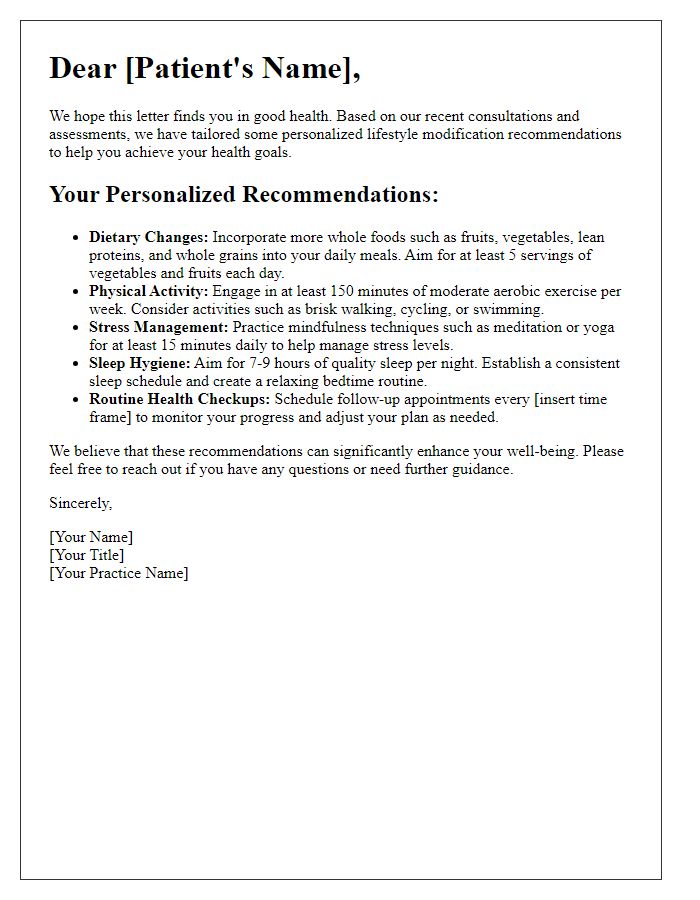
Letter template of supportive behavioral change suggestions for patients.
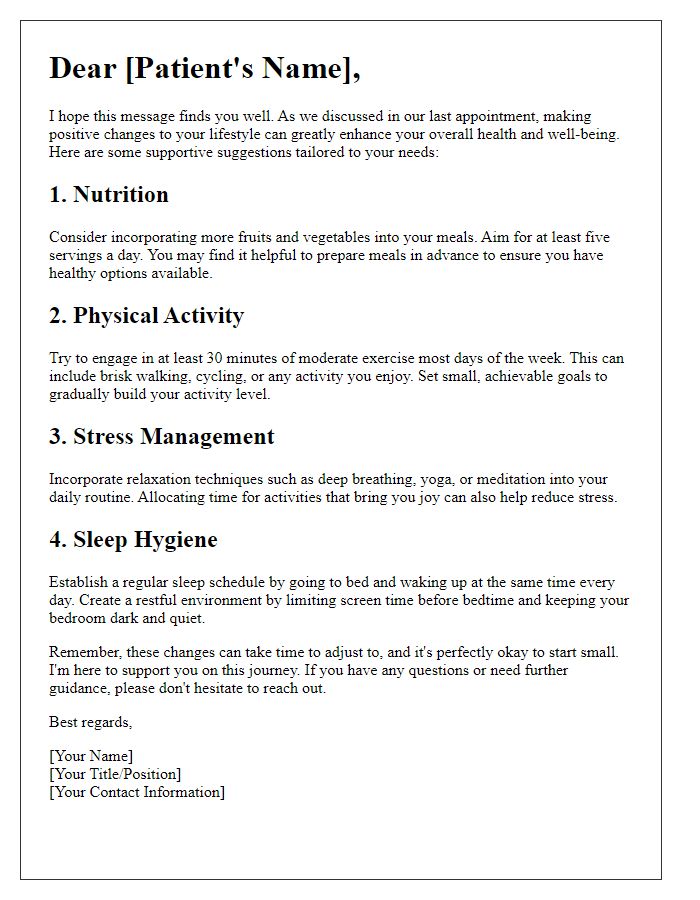
Letter template of actionable health tips for patient lifestyle enhancement.
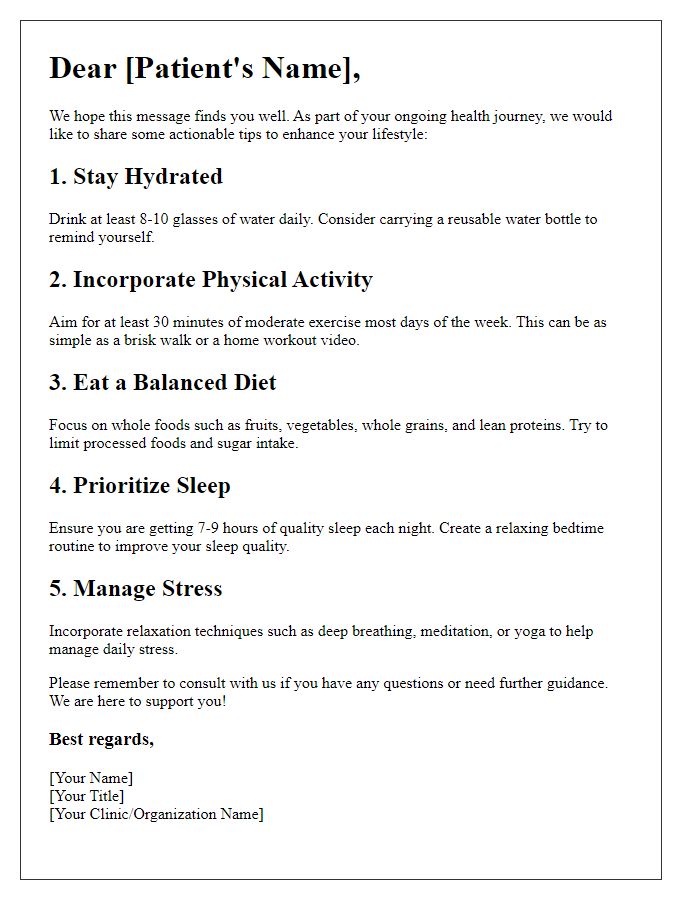
Letter template of essential lifestyle recommendations for patient well-being.
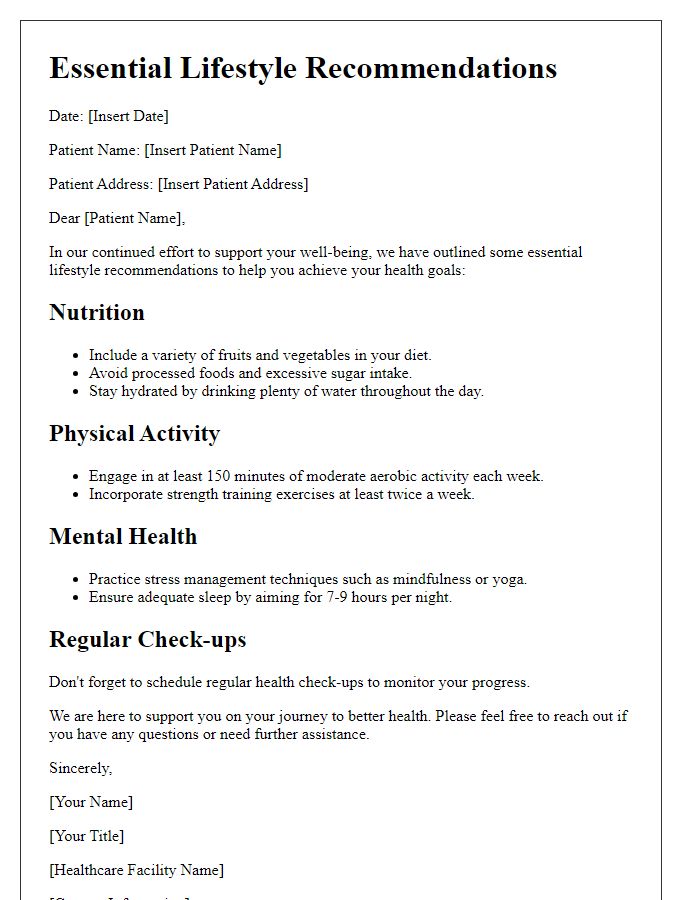

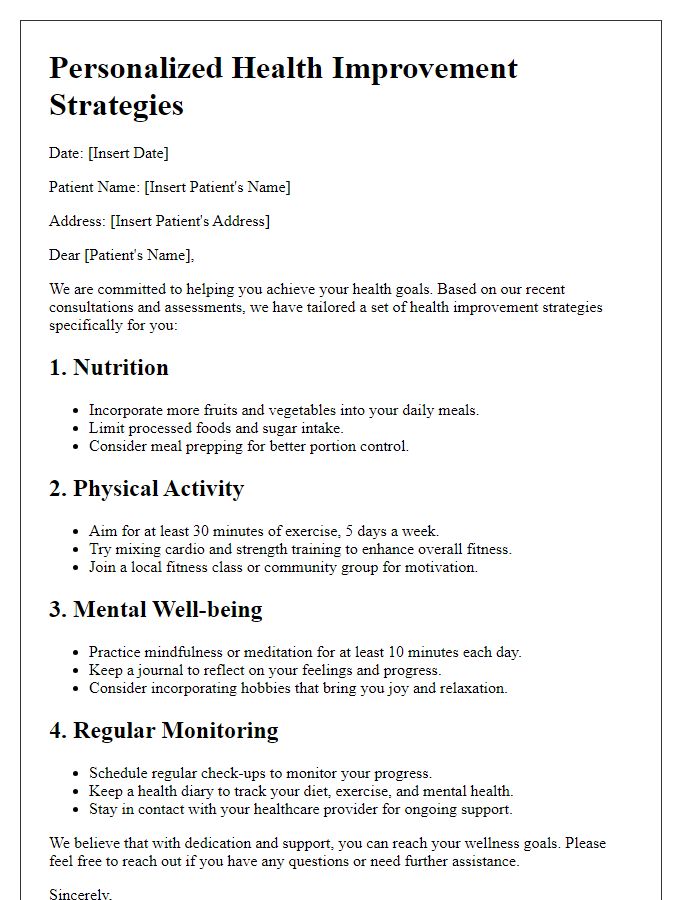
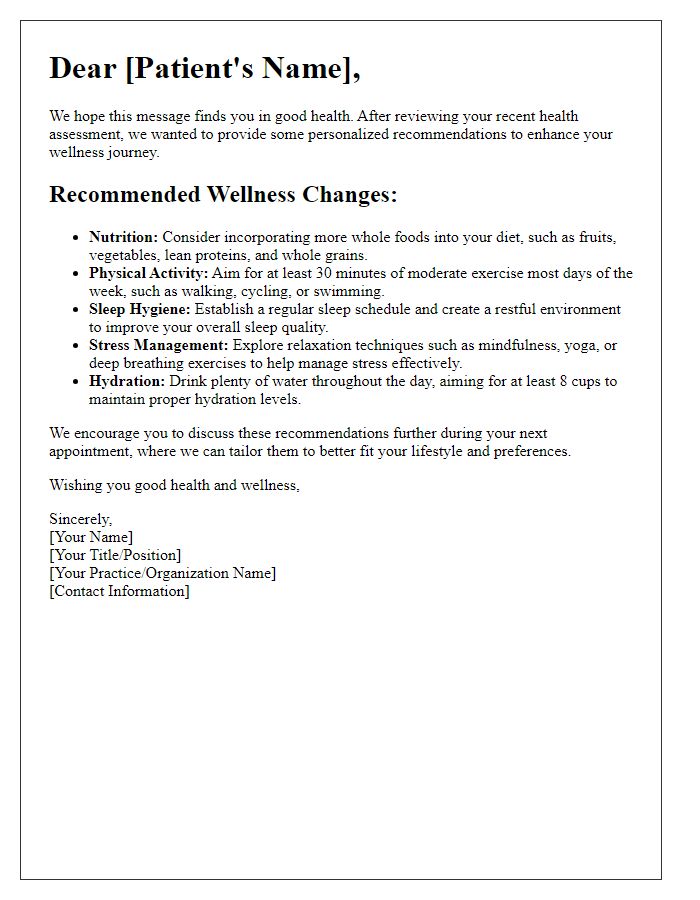
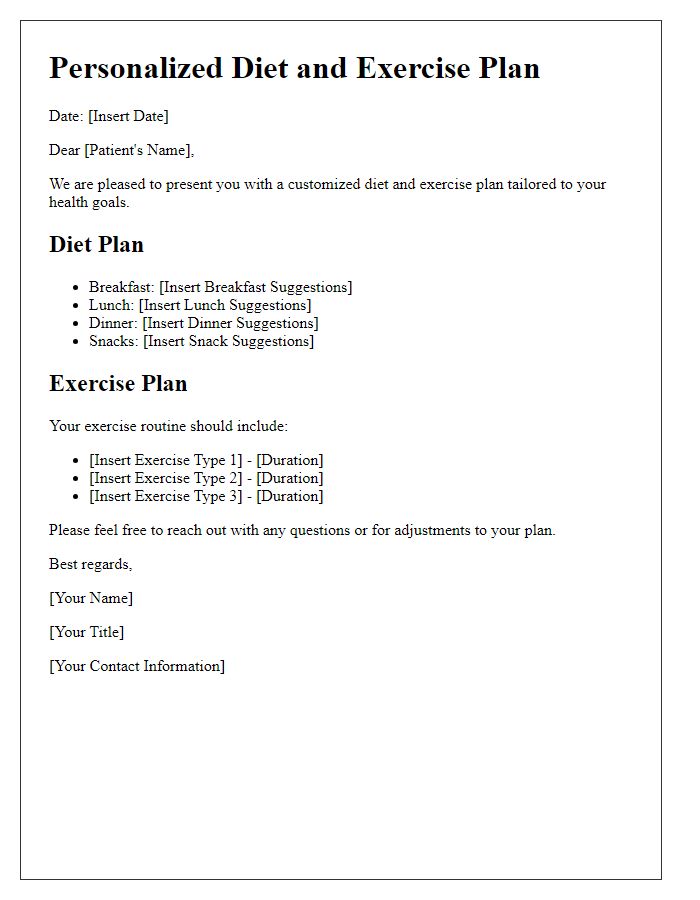
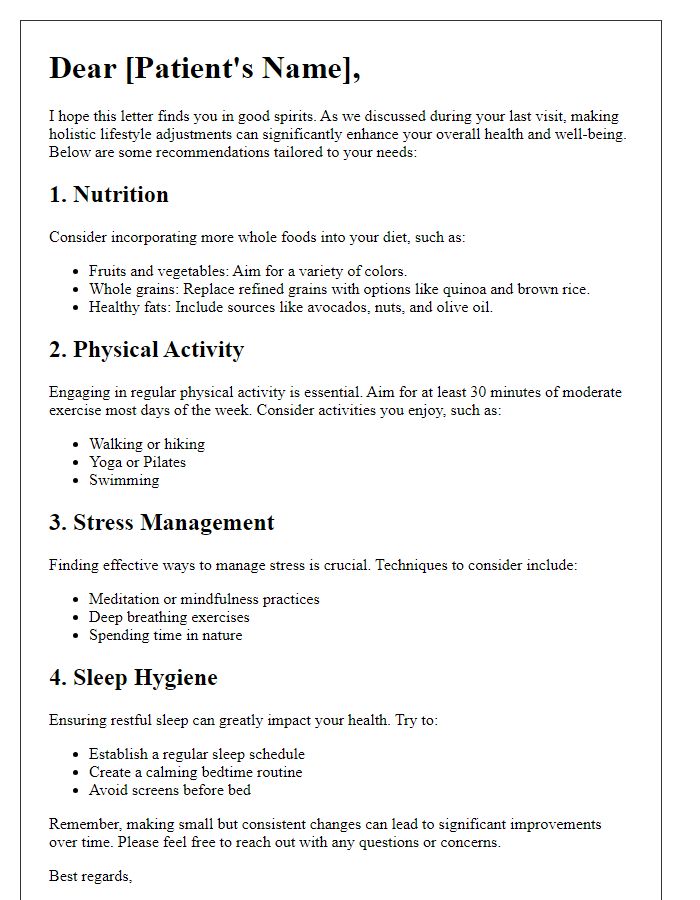
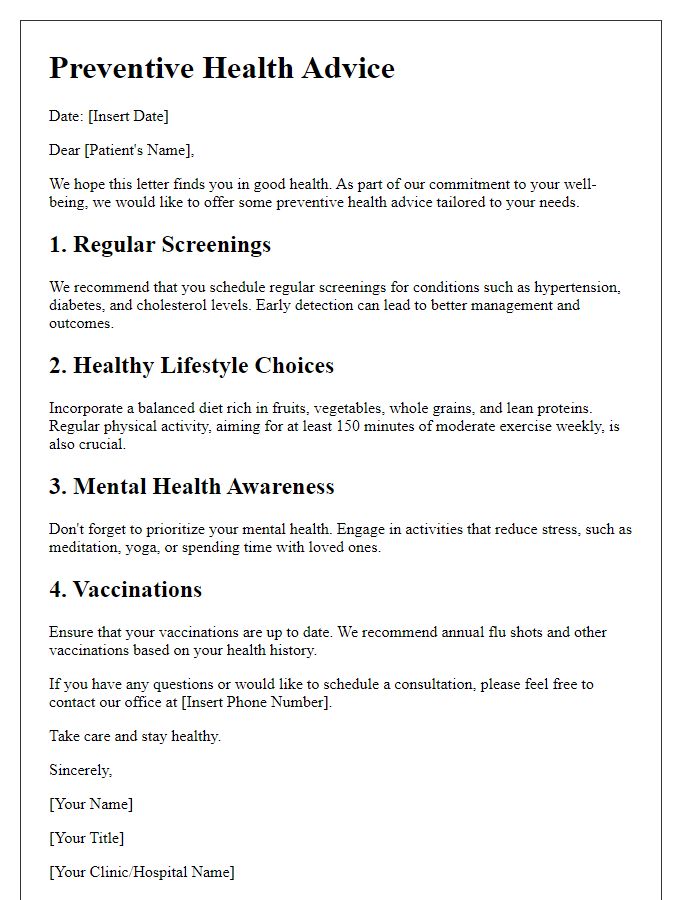
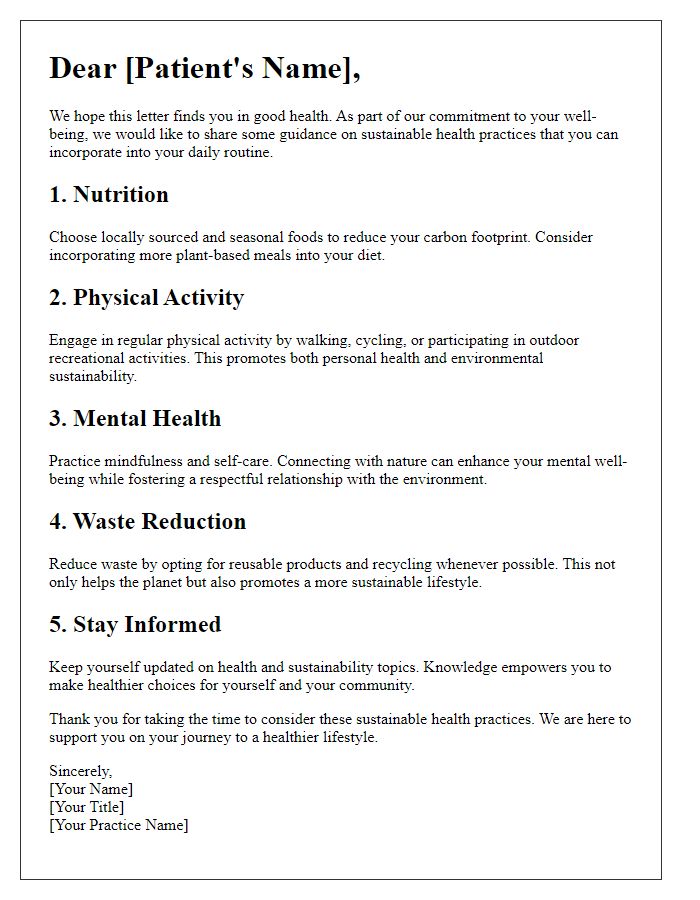


Comments